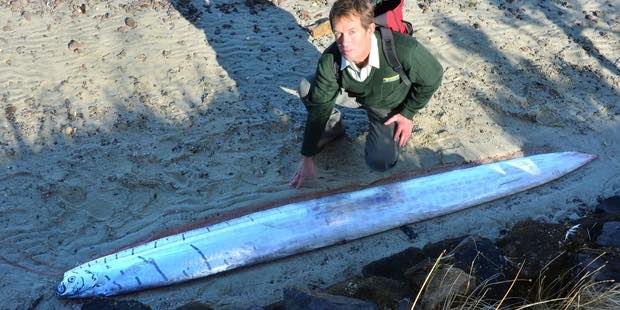Researchers are baffled after discovering a rare deep sea oarfish had washed up on a salt marsh, Otago Harbour, in Dunedin, New Zealand.
The three-metre creature was found by a local resident in Aramoana, who then called the Department of Conservation.
The group’s service manager David Agnew went to look at the specimen and said he had not seen anything like it in his 20 years of employment there.
University of Otago NZ Marine Studies Centre manager Tessa Mills confirmed the fish was an oarfish, which can grow up to 11m long.
Speaking to the Otago Daily Times, she said: “They are usually found in deep water in tropical temperatures but I think they do come up to feed on the surface.”
She added that it was unusual that it had been found washed up in a cold water area.
Oarfish are large, greatly elongated fish found in all temperate to tropical oceans yet rarely seen.
The oarfish family contains four species in two genera. One of these, the giant oarfish (Regalecus glesne), is the longest bony fish alive, growing to up to 11 m (36 ft) in length. That is not enough to qualify as the longest fish, however, as some of the cartilaginous fish such as the basking shark and whale shark are even longer.
Agencies/Canadajournal
 Canada Journal – News of the World Articles and videos to bring you the biggest Canadian news stories from across the country every day
Canada Journal – News of the World Articles and videos to bring you the biggest Canadian news stories from across the country every day




it’s a small oarfish, some huge ones have washed up, they never used to but something is causing them to come up from the depths of the sea and end up on beach’s.